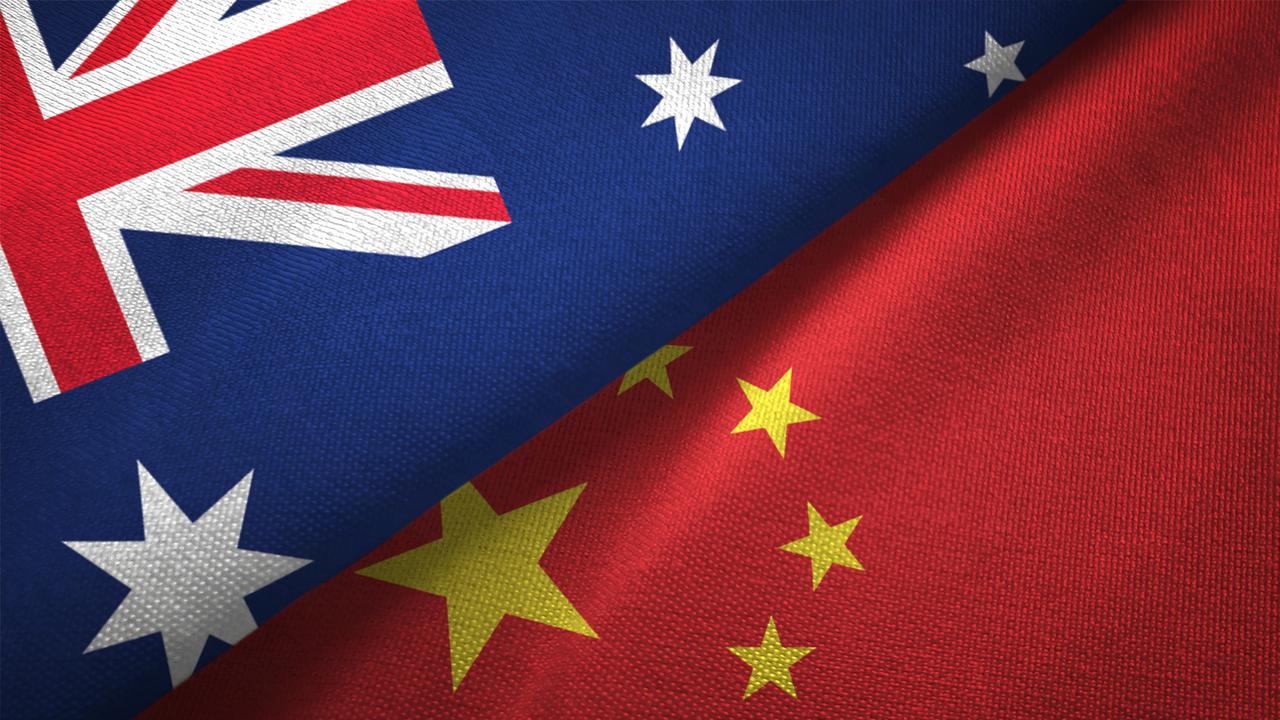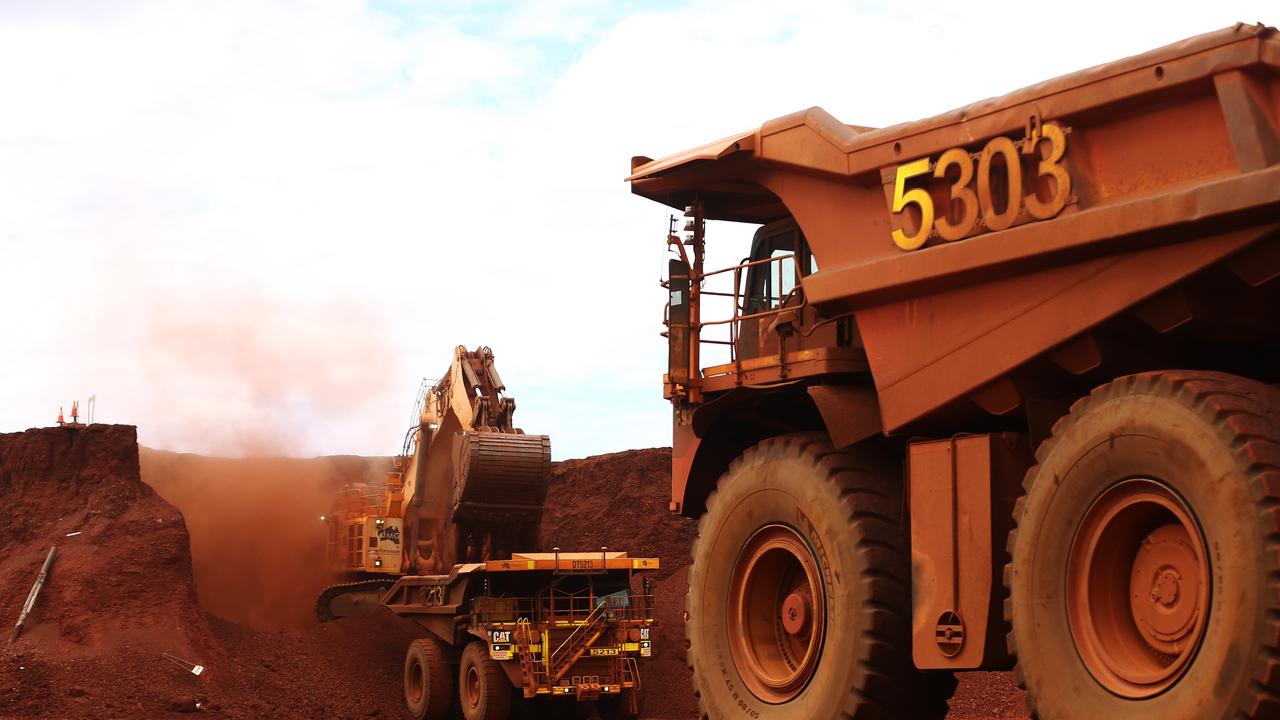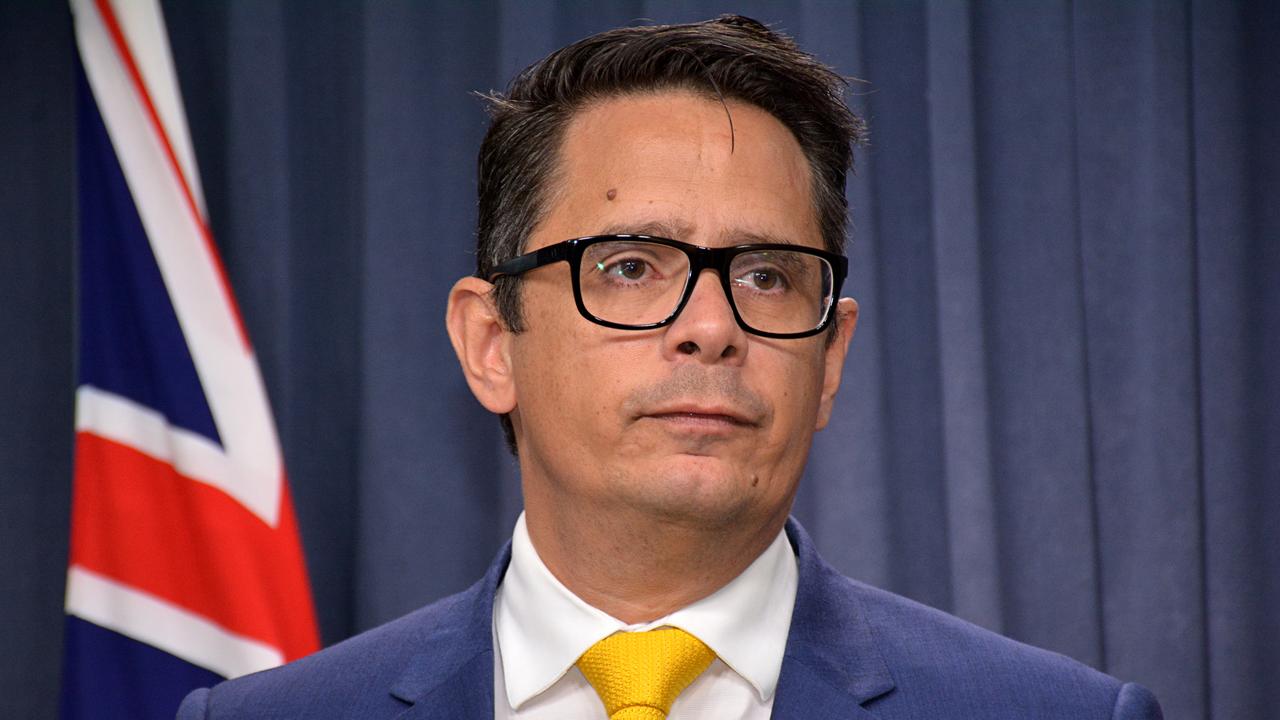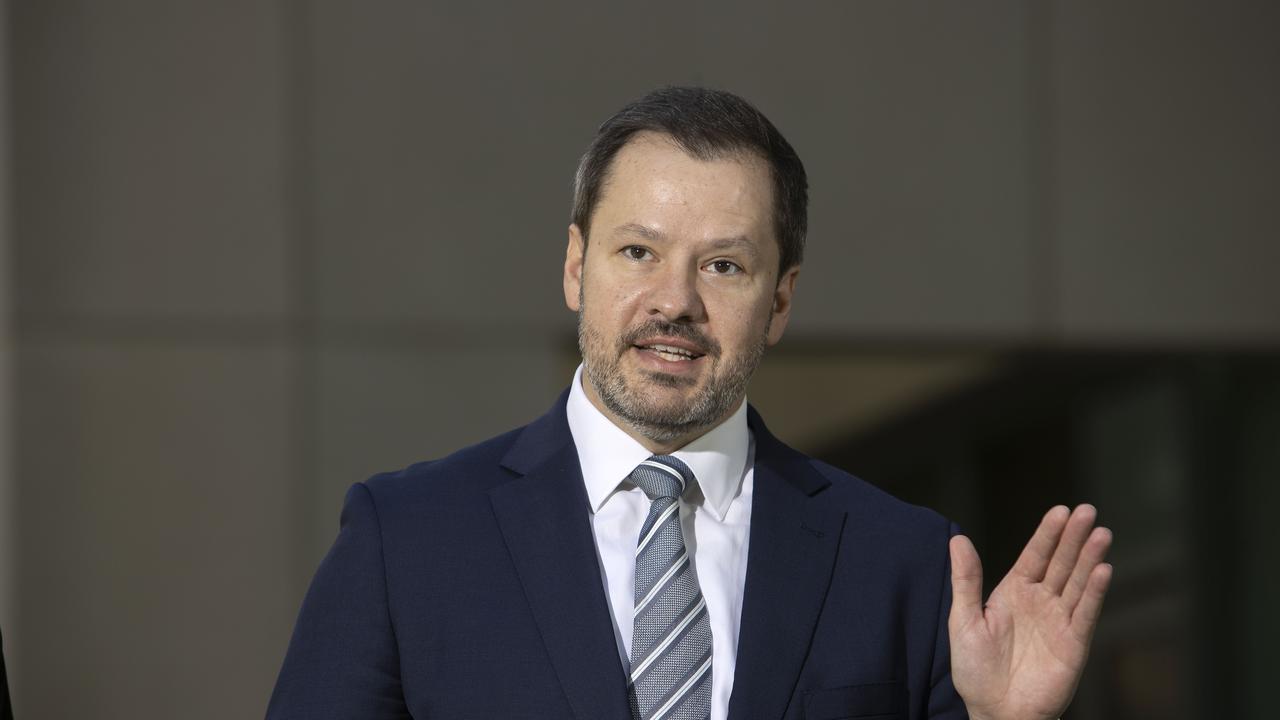China rumblings fuel fears for Australia’s most crucial export
Rumblings from China suggest the communist nation could hit where it really hurts as the trade spat with Australia continues.

There are mounting concerns iron ore could become the next battleground between China and Australia amid rising trade tensions, especially as the price of the steel making commodity keeps surging.
The iron ore price has been strong this year as high demand from the Asian superpower combined with supply disruptions, with the world’s biggest producer, Brazil’s Vale, last week lowering its production forecasts.
The price is at its best levels in years, about $US160 per tonne.
The China Iron and Steel Association is unhappy, saying the pricing system has “failed” and calling on regulators to crack down on any wrongdoing.
West Australian Treasurer Ben Wyatt, however, says there have always been rumblings from China about the system, which used to be based on 12-month contracts but iron ore is now increasingly sold on the spot market.
“The price of iron ore, when it gets to these levels unsurprisingly you get some pushback out of China whether it’s based on transparency issues or whatever it happens to be,” Mr Wyatt said on Monday in handing down the state’s mid-year economic review.
The review upgraded WA’s 2020-21 operating surplus by $1b — in no small part due to the iron ore price rally.

“Pushing back on how the price is struck is not a new thing,” Mr Wyatt said.
“I suspect it has an elevated interest at the moment because of what else has been happening.
“I’m still reasonably confident that the demand for our iron ore will stay just because of the quality of the product, how close we are to market, we’re a reliable supplier … but we have to continue to work on this (relationship with China).
“BHP, FMG and Rio will need to satisfy their customers that there is transparency around how the spot price is working.”
Mr Wyatt said he “always” worried about such matters.
He was dismissive of former resources minister Matt Canavan’s call for the federal government to make Beijing to “pay a price” for its trade bans on other Australian exports by imposing a levy on iron ore.

The Nationals Senator said in a column in The Australian that a 1 per cent levy would raise more than $800 million a year, which could be used to support sectors hit by the bans and tariffs.
“This sort of madness now where you effectively seek to punish a successful industry to make up for other industries just highlights the point where some of my federal colleagues, God bless them, have gotten to,” Mr Wyatt said.
“I suspect that will be quickly dismissed by the more rational people in the Commonwealth.”
Labor MP Ed Husic said Mr Canavan’s suggestion was “quite surprising” and inviting China to look elsewhere for iron ore.
“If someone from the west coast was going to argue the same thing on coal, you can imagine that Matt would lose his mind,” Mr Husic told Sky News.
“But he’s quite happy to do that with WA.
“I do not think this would be something that industry would necessarily welcome. They would not want, at this point in time, something that inflames the situation.”

WA Treasury expects the iron ore price will return to a long-run average of $US64/t.
“At the moment it is high but can rapidly turn around based on a range of issues,” Mr Wyatt said.
“Where you have rapid increase in price you also have rapid decreases.
“No one really knows what it’s going to do beyond a 12-month cycle.”
Also on Monday, S&P Global Ratings said almost all Australian states and territories would suffer record deficits in 2020-21 and sharp spikes in debt as they responded to COVID-19, but WA would be “one of the few shining lights globally, powered by strong iron ore exports and favourable reforms to the goods and services tax”.



